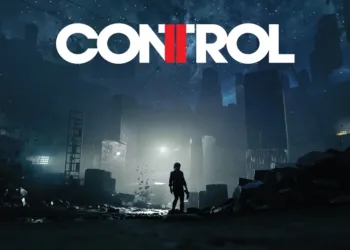The Call of Duty franchise stands at a potential crossroads as rumors emerge about significant changes to its monetization strategy for the upcoming Black Ops 7, expected to release in 2025. According to credible leaker @TheGhostOfHope, Activision and developer Treyarch are considering a fundamental restructuring of the Battle Pass system that could dramatically alter how players access limited-time modes (LTMs) and special events.
The proposed changes would reportedly eliminate the current Premium Event Track system in favor of integrating these exclusive offerings directly into the standard Battle Pass. While this might streamline the purchasing process by removing the need for separate event track purchases, it raises significant questions about accessibility and value. For longtime fans, this represents a potentially controversial shift in how Call of Duty monetizes its content beyond the initial game purchase.
Table of contents
- Black Ops Rumored Battle Pass Overhaul: What We Know So Far
- Potential Impacts on Player Experience and Community
- Industry Context: Evolving Monetization in Live Service Games
- What This Means for the Future of Call of Duty
- Current vs. Rumored Battle Pass Systems
- Pros and Cons of the Rumored Battle Pass Changes
- FAQs
The gaming community has already begun debating whether this change would represent a consumer-friendly consolidation of premium content or a concerning move toward restricting gameplay experiences behind additional paywalls. As Black Ops 7 continues development under Treyarch’s direction, these rumored changes highlight the ongoing evolution of live service monetization in one of gaming’s most influential franchises and could signal broader industry trends in how publishers approach the delicate balance between profitability and player satisfaction.

Black Ops Rumored Battle Pass Overhaul: What We Know So Far
According to information shared by respected Call of Duty leaker @TheGhostOfHope on May 4, 2025, Activision is reportedly planning a significant restructuring of how the Battle Pass functions in Black Ops 7. The most notable change would be the integration of “higher value” limited-time modes and events directly into the Battle Pass, making them exclusive to players who purchase this premium content.
This represents a substantial departure from the current system, where all players can access limited-time modes regardless of whether they’ve purchased the Battle Pass. Under the existing model, the Battle Pass primarily offers cosmetic rewards, weapon blueprints, and operator skins, while gameplay content remains accessible to the entire player base.
The leak suggests that Activision may be looking to consolidate its premium offerings by eliminating the separate Premium Event Tracks that currently cost 1,100 CoD Points. These special event tracks have been used for notable crossovers and special content, such as the recent Seth Rogen Operator skin. Instead of maintaining these as separate purchases, the rumored change would fold similar premium content directly into the standard Battle Pass.
While neither Activision nor Treyarch has officially commented on these rumors, the source has previously provided accurate information about Call of Duty developments. The timing of this leak aligns with the typical development cycle for Call of Duty titles, as Black Ops 7 would likely be in mid-development at this point ahead of its expected 2025 release.
If implemented, this change would represent one of the most significant shifts in Call of Duty’s monetization strategy since the introduction of the Battle Pass system. It would also potentially signal a broader industry trend of reconsidering how live service games balance free and premium content to maintain profitability while managing player expectations.
Potential Impacts on Player Experience and Community
The rumored Battle Pass changes for Black Ops 7 could have far-reaching implications for how players experience Call of Duty in 2025 and beyond. By potentially restricting certain limited-time modes and events to Battle Pass owners, Activision would be creating a more distinct division between paying and non-paying players.
For Battle Pass purchasers, this change could represent increased value for their investment. Rather than needing to make separate purchases for premium event tracks, all exclusive content would be bundled into a single purchase. This streamlining might be welcomed by players who regularly purchase all premium content but have found the current system fragmented and confusing.
However, for players who don’t regularly purchase the Battle Pass, this change could mean losing access to gameplay experiences that have traditionally been available to all. Limited-time modes have historically been an important way for Call of Duty to maintain player engagement and provide fresh experiences without requiring additional purchases. Restricting these modes could create frustration among casual players or those who can’t afford regular Battle Pass purchases.
The community impact could be significant as well. Creating gameplay divisions between paying and non-paying players risks fragmenting the player base, potentially leading to longer matchmaking times for exclusive modes or creating a perception of “pay-to-play” that could damage the franchise’s reputation. Player retention might suffer if those unwilling or unable to purchase the Battle Pass feel they’re missing out on core gameplay experiences rather than just cosmetic enhancements.
From a business perspective, this move could be seen as Activision’s response to increasing development costs and the need to maximize revenue from existing players rather than relying solely on new game sales. With the gaming industry facing economic pressures and rising development costs, publishers are continuously exploring new monetization strategies to maintain profitability.
The success of this approach will likely depend on how Activision balances exclusivity with accessibility. If the exclusive content offers substantial value without feeling essential to the core experience, players might accept the change. However, if popular or anticipated modes become locked behind the Battle Pass, the community reaction could be significantly negative.
Industry Context: Evolving Monetization in Live Service Games
The rumored changes to Call of Duty’s Battle Pass system reflect broader trends in how publishers are approaching monetization in live service games. As development costs rise and player expectations for ongoing content grow, companies are continuously experimenting with different models to balance profitability with player satisfaction.
Call of Duty’s current approach—combining premium game sales with optional Battle Passes and cosmetic purchases—has been relatively successful but faces increasing challenges. With each annual release, Activision must convince players to reinvest not just in a new game but in a new cycle of Battle Passes and premium content. This creates pressure to innovate in monetization strategies while maintaining player goodwill.
Other major franchises have taken different approaches. Fortnite, for example, offers its core game for free while generating revenue primarily through Battle Passes and cosmetic purchases. Halo Infinite attempted a similar model but faced criticism for slow content releases and restrictive progression systems. Destiny 2 has experimented with various combinations of premium expansions, seasonal passes, and à la carte content purchases.
What makes Call of Duty’s potential shift notable is that it would represent a move toward more restrictive content gating rather than the industry trend of making core gameplay more accessible. While many publishers are finding ways to monetize cosmetics and optional content while keeping gameplay experiences available to all players, this rumored change would do the opposite by potentially restricting gameplay experiences to paying customers.
This approach carries significant risks. Players have become increasingly sensitive to perceived overmonetization, and restricting content that was previously available to all could trigger backlash. However, if Activision can demonstrate that the consolidated Battle Pass offers greater value and more premium content than before, they might be able to justify the change to their community.
The outcome of this experiment, if implemented, could influence how other publishers approach the delicate balance between monetization and accessibility in their own live service games. A successful implementation might encourage others to explore similar models, while significant backlash could reinforce the industry’s current trajectory toward monetizing optional content rather than core gameplay experiences.

What This Means for the Future of Call of Duty
If the rumored Battle Pass changes materialize in Black Ops 7, they could signal a significant shift in Activision’s long-term strategy for the Call of Duty franchise. Beyond the immediate impact on player experience, these changes would reflect how the publisher is positioning the series for the future gaming landscape.
The timing is particularly significant given Microsoft’s recent acquisition of Activision Blizzard. Under new ownership, the company may be reevaluating its approach to monetization across its portfolio. Microsoft has generally favored subscription models like Game Pass, which emphasize access to a broad library of games rather than microtransactions within individual titles. How these corporate philosophies will influence Call of Duty’s monetization remains to be seen.
From a content perspective, restricting certain modes to Battle Pass owners could actually lead to more innovative limited-time experiences. If developers know these modes will be experienced by a dedicated subset of players who have financially invested in the game, they might be empowered to create more experimental or niche gameplay that wouldn’t necessarily appeal to the broader audience. This could potentially lead to more creative and diverse limited-time offerings.
The success of this approach will likely influence not just future Call of Duty titles but also how Activision approaches monetization in its other franchises. As one of the publisher’s flagship series, Call of Duty often serves as a testing ground for monetization strategies that may eventually appear in other Activision Blizzard titles.
For players, the most important question remains whether this change would ultimately enhance or diminish their experience with the game. If the consolidated Battle Pass offers substantial value and the exclusive modes feel like genuine premium content rather than artificially restricted experiences, players might embrace the new system. However, if popular or anticipated modes become inaccessible to a significant portion of the player base, the community reaction could force Activision to reconsider its approach.
As with any significant change to a beloved franchise, the ultimate verdict will come from the players themselves when Black Ops 7 launches in 2025. Until then, these rumors offer an intriguing glimpse into how one of gaming’s biggest franchises is navigating the evolving landscape of live service monetization.
Current vs. Rumored Battle Pass Systems
| Feature | Current System (Black Ops 6) | Rumored System (Black Ops 7) | Potential Impact |
|---|---|---|---|
| Limited-Time Modes | Available to all players | Some exclusive to Battle Pass owners | Restricts gameplay content behind paywall |
| Premium Event Tracks | Separate purchase (1,100 CoD Points) | Integrated into standard Battle Pass | Streamlines premium purchases |
| Special Operators/Skins | Available through various methods | Higher-tier content exclusive to Battle Pass | Consolidates premium cosmetics |
| Crossover Content | Often in separate event tracks | Likely integrated into Battle Pass | Potentially more crossover content in standard pass |
| Cost Structure | Multiple separate purchases | Single Battle Pass purchase | Potentially more cost-effective for regular buyers |
| Player Base Division | Minimal gameplay division | More significant division based on purchases | Possible matchmaking and community impacts |
Pros and Cons of the Rumored Battle Pass Changes
| Pros | Cons |
|---|---|
| Streamlined purchasing process | Restricts gameplay content that was previously free |
| Potentially better value for regular Battle Pass buyers | Creates division between paying and non-paying players |
| Consolidated premium content in one purchase | May feel like forced monetization to access full game experience |
| Possibly more premium content overall | Could negatively impact player retention for non-buyers |
| Clearer progression path for premium content | Potential community backlash over perceived greed |
| May enable more innovative LTM development | Possible longer matchmaking times for exclusive modes |
| Simplified tracking of available content | May set concerning precedent for industry monetization |
EA FC25 Immortality League: Unlock 92-Rated Paolo Maldini in Ultimate Team
FAQs
A1: Casual players would likely experience the most significant impact from these rumored changes. Currently, all players can access limited-time modes (LTMs) regardless of whether they’ve purchased the Battle Pass, with premium purchases primarily offering cosmetic rewards and progression bonuses. Under the rumored system, casual players who don’t purchase the Battle Pass would potentially lose access to certain “higher value” LTMs and events. This could substantially reduce the variety of gameplay experiences available to non-paying players, potentially making the base game feel more limited compared to previous titles. For players who enjoy Call of Duty for its rotating selection of game modes but don’t invest in premium content, this change would represent a notable reduction in accessible content.
A2: This rumored change represents a notable deviation from recent industry trends in live service monetization. While many publishers have been moving toward models that monetize cosmetic content while keeping gameplay experiences accessible to all players (following the success of games like Fortnite), this change would do the opposite by potentially restricting gameplay behind premium purchases. If implemented and successful, it could signal to other publishers that players are willing to accept gameplay restrictions as part of premium content offerings, potentially leading to similar approaches in other franchises. However, if the change faces significant backlash, it could reinforce the industry’s current trajectory toward monetizing optional content rather than core gameplay.








